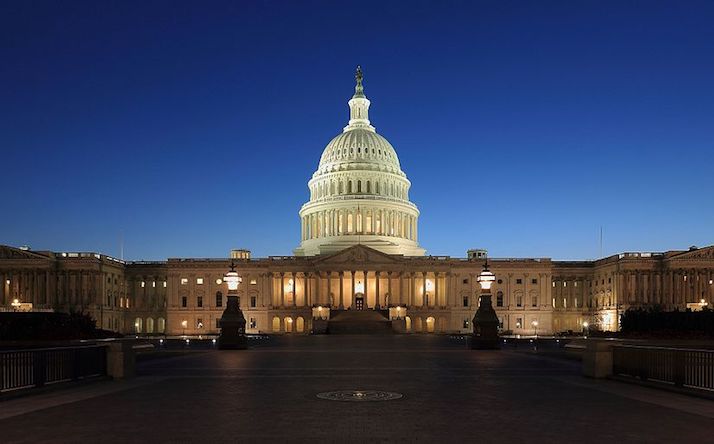
Federal tax policies related to energy industries are a de facto component of federal climate policy. They can boost or hamper carbon-emitting fossil fuels, cleaner renewable sources, or both. TCN’s Washington correspondent, Joseph A. Davis, reports that the mammoth overhaul of the federal tax code is basically a wash when it comes to Texas producers of both fossil and renewable energy.
+++
By Joseph A. Davis
Texas Climate News
WASHINGTON – The Republican tax bill – the deal forged in House-Senate negotiations – preserves most renewable-energy incentives, as well as more traditional fossil-energy tax breaks.
The Senate, followed by the House, gave their final approval to the measure today, sending it to President Trump’s desk. The votes were 51-48 in the Senate (a strictly party-line result) and 224-201 in the House (where a handful of Republicans joined all voting Democrats in opposition).
Whatever else you may say about the tax-code overhaul, Texas energy producers and the climate won’t be much worse off because of its passage. Wind, solar, gas, and oil all matter in Texas. These vying fuels and sources have for years competed on the battleground of subsidies and tax breaks. None of the big energy sources really comes out of this tax debate with a new advantage. All currently have substantial tax breaks.
Wind Energy
Texas produces more wind energy than any other state by a huge margin. In recent years, the tax break that the wind industry relies on most has been the “production tax credit,” or PTC. The conferees left it in place. This had hardly been a sure thing, since the original House tax bill revoked the PTC, to the consternation of the wind industry. The American Wind Energy Association, wind’s chief lobbying group, is quite happy with the final tax bill now.
Solar Energy
Solar, which has lagged well behind wind in Texas but has recently been making strides, benefits from the same production tax credit that wind does, and benefits likewise from its survival. The solar industry was especially happy about the solar Investment Tax Credit, as well. It applies to both solar and wind. But it gives benefits to both utility-scale and household-scale investors. The Solar Energy Industry Association praised the GOP conferees’ bill.
Oil and Gas: Arctic Refuge
The tax bill includes congressional authorization to lease and drill certain petroleum tracts within the Arctic National Wildlife Refuge (ANWR). Congress had originally put the “1002 Area” off-limits under the 1980 law that divided up and categorized Alaskan lands. The oil companies have yearned for it for decades, and have tried dozens of times to unlock it via Congress, but have failed until now. One key to this success is that the tax bill does not entail a standalone vote on ANWR, and its formulation as a “budget” measure allows passage by a simple majority.
Oil and Gas: Existing Subsidies
The oil and gas industries have benefited from a collection of tax breaks and other federal subsidies that have been well documented. The GOP tax bill does not disturb these.
Electric Vehicles
The tax bill also preserves existing tax credits for zero-emission vehicles — up to $7,500 for plug-in electric cars. The House version of the tax bill had eliminated those credits, which have encouraged consumer adoption of electric vehicles. The Alliance of Automobile Manufacturers applauded. Hybrid vehicles don’t qualify for the credit.
Coal
The coal industry has enjoyed substantial federal subsidies for decades. Among the choicest involves the leasing of coal from federal lands. In this listing by the nonpartisan Taxpayers for Common Sense, this “Section 29” credit is one of the biggest tax breaks for coal. In one New York University analysis, coal paid the lowest effective tax rate of any industry examined. The 2017 GOP tax bill did little to disturb these subsidies.
The incentives in the tax bill will only supplement the many other federal efforts to boost particular energy sectors, such as President Trump’s pro-coal push at the Environmental Protection Agency and the Department of Energy (headed by Rick Perry, a supporter of the coal industry when he was Texas governor).
For the oil industry, low crude prices on world and domestic markets have been a chronic bar to profitability for years. Today’s prices may be too low to support exotic technologies like deepwater or Arctic offshore drilling. The GOP-Trump efforts to encourage more drilling may have the paradoxical effect of flooding an already depressed market, keeping the oil price low.
+++++
Joseph A. Davis is the Washington correspondent of Texas Climate News.
